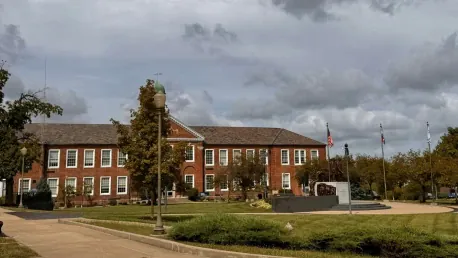Jefferson City is grappling with a significant financial dilemma as it seeks to bridge a $750,000 shortfall in its self-funded health insurance plan for fiscal year 2024. The Jefferson City Council recently faced a critical decision to cover this deficit, with various funding strategies being discussed to address the gap. Councilmember Mark Schwartz introduced two bills aimed at resolving the shortfall, presenting two distinct methods of funds allocation. The members of the city council were evenly split in their support for each proposal, highlighting the multifaceted nature of the issue. With the deadline fast approaching, the council’s decision could have far-reaching implications on the city’s employees and its overall budget.
The Proposed Funding Strategies
Schwartz’s first proposal, known as Bill 2024-077B, suggested pulling $533,925 from the general fund and $129,000 from the parks fund. This was based on an administrative chargeback percentage that aimed at distributing the financial burden more equitably across city operations. The second proposal, Bill 2024-077A, recommended funds allocation based on the number of employees in each department. According to this calculation, $586,098.40 would come from the general fund and $89,244.85 from the parks fund. The bill’s distinction lies in its impact on individual departments, as each approach would differently stress the city’s financial resources.
During the council meeting, tensions ran high as members debated the merits of each approach. Schwartz moved to vote on Bill 077B, leading to a stalemate among council members. Councilmembers Job, Lester, Leuckel, Mealy, and Young opposed the bill, while Schwartz, Spencer, Spicer, Ahlers, and Hoselton supported it. The deadlock forced Mayor Ron Fitzwater to cast a tie-breaking vote, ultimately deciding in favor of Bill 2024-077B. This outcome underscored the polarized opinions within the council and set the stage for further deliberations on the sustainability of the city’s health insurance program. Throughout the discussions, fiscal prudence and equitable distribution remained pivotal points of contention.
Concerns and Implications
Opponents of Bill 2024-077B, such as Councilmember Job, voiced their preference for Bill 077A, which they believed would have less dramatic implications on individual departments. Concerns were raised regarding the fairness of burden distribution and potential future ramifications. City department leaders and Sheila Pearre, the director of finance, underscored that the immediate impact would be minimal as the funds were drawn from the balance rather than monthly allocations, ensuring department budgets for fiscal year 2025 remained unaffected. However, the more pressing issue lurks within the broader question of the program’s long-term sustainability.
Jefferson City’s leaders faced challenges in repeatedly supplementing the health insurance program. This funding crisis reflects a recurring problem, where additional funds have been necessitated to keep the program afloat. In November 2024, Quantify Specialty Care’s rescindment of an agreement to provide health care services compounded the financial strain, forcing the city to explore new insurance options. The potential partnership with Quantify was anticipated to mitigate a looming $2 million shortfall, throwing a spotlight on the city’s urgent need for sustainable health insurance solutions.
Legal and Governance Challenges
Further complicating the matter, Councilmember Aaron Mealy filed a complaint in October against the city for allegedly violating Missouri’s Sunshine Laws. He accused the city of failing to provide notice ahead of meetings to discuss new health care options, which has sparked additional governance challenges for Jefferson City. The procedural issues highlighted by Mealy’s complaint reveal the broader struggle for transparency and accountability within the city’s operations. Such legal wrangling adds to the already taxing process of finding solutions to fund the health insurance program effectively.
In understanding these governance challenges, it becomes clear that the city faces not only financial hurdles but also administrative and procedural obstacles. The interplay between immediate financial strains and broader structural issues necessitates a more comprehensive approach to problem-solving. The council’s decision-making process is under scrutiny, and the need for clear, sustainable, and transparent governance practices has never been more pressing as the city seeks to address the health insurance funding crisis.
Future Considerations and Solutions
Jefferson City is currently facing a considerable financial challenge as it attempts to close a $750,000 deficit in its self-funded health insurance plan for fiscal year 2024. The Jefferson City Council recently convened to tackle this urgent issue, debating various strategies to cover the financial gap. Councilmember Mark Schwartz proposed two new bills, each suggesting a different approach for allocating the necessary funds. The council members found themselves equally divided in their support for each proposal, underscoring the complexity and multifaceted nature of the problem. The clock is ticking, and the impending deadline heightens the urgency of a resolution. The council’s final decision is critical as it could significantly impact the city’s employees and the overall budget. The outcome of this decision holds the potential to affect various aspects of city operations, making it a situation that requires careful consideration and swift action to ensure stability and continued support for city staff.









